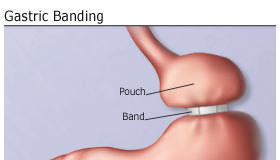Gum Inflammation Linked To Alzheimer’s Disease
NYU dental researchers have found the first long-term evidence that periodontal (gum) disease may increase the risk of cognitive dysfunction associated with Alzheimer's disease...
Eating Chocolate For Breakfast Can Reduce Hunger and Benefit Weight Control
Eating milk chocolate every day may sound like a recipe for weight gain, but a new study of postmenopausal women has found that eating...
New Study Reveals Link Between Obesity and Genes Controlling Carbohydrate Digestion
New research indicates that obesity in the general population may be genetically linked to how our bodies digest carbohydrates.
Published today in the journal Nature Genetics,...
Blood Glucose And Risk Of Incident And Fatal Cancer In The...
Tanja Stocks and colleagues carry out an analysis of six European cohorts and confirm that abnormal glucose metabolism is linked with increased risk of cancer overall and at specific sites.
Weight Loss Update: FDA Panel Recommends Making Lap-Band Surgery Available To...
The procedure may help more people shed the pounds. But it will also fill the coffers of surgeons, hospitals, and a global specialty pharmaceutical company. About 100,000 people each year have laparoscopic surgery to implant a small, flexible band—the Lap-Band, from Allergan, Inc.—on their stomach. It’s designed to help them lose weight by dramatically limiting their food intake.
How To Lose Weight Without Losing Bone
A higher-protein diet that emphasizes lean meats and low-fat dairy foods as sources of protein and calcium can mean weight loss without bone loss--and the evidence is in bone scans taken throughout a new University of Illinois study.
Bacon Or Bagels? Higher Fat At Breakfast May Be Healthier Than...
The age-old maxim "Eat breakfast like a king, lunch like a prince and dinner like a pauper" may in fact be the best advice to follow to prevent metabolic syndrome, according to a new University of Alabama at Birmingham (UAB) study.
Changing Our Clocks: New Research Explores How Our Bodies Keep Time
Our alarm clocks may spring forward on March 9, but our biological clocks may take longer to adjust. That’s because our internal clocks are so tightly wound to many physiological and behavioral processes. Researchers have learned that circadian rhythms—the 24-hour cycles that keep our bodies on time—are involved in sleep, weight gain, mood disorders, and a variety of diseases. Now, they’ve made remarkable strides in identifying...
Extended Fasting Overrides Harmful Effects Of A High-Fat Diet
It turns out that when we eat may be as important as what we eat. Scientists at the Salk Institute for Biological Studies have found that regular eating times and extending the daily fasting period may override the adverse health effects of a high-fat diet and prevent obesity, diabetes and liver disease in mice.
Normal Weight Individuals With Belly Fat At Highest CVD Risk
Normal weight individuals who carry weight concentrated in their belly have a higher death risk than obese individuals, according to research presented at ESC Congress 2012. The results were presented by Dr Karine Sahakyan from the Mayo Clinic.
‘Belly Fat’ Linked To Development of Asthma, Study Finds
Belly fat, known clinically as central obesity, has been linked to the development of asthma in a new study. The findings, presented at the European Respiratory Society's Annual Congress in Amsterdam, have shown central obesity as a risk factor for the disease.
Reduced Lung Capacity Linked To Cardiovascular Disease By Inflammation
People who have a reduced lung capacity may have a greater risk of heart attack and stroke because they show evidence of inflammation, reveals a study published online ahead of print in Thorax. This association is not related to smoking, respiratory diseases or obesity. The New Zealand researchers took measurements of lung capacity and inflammation ...

















